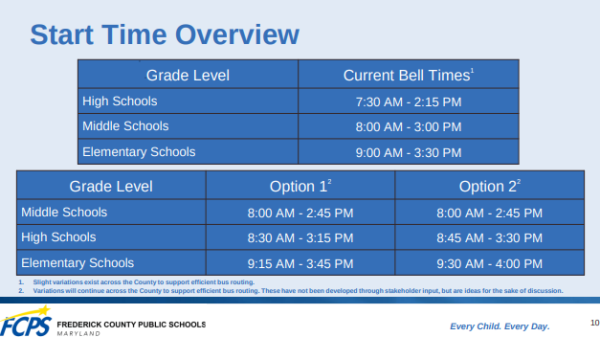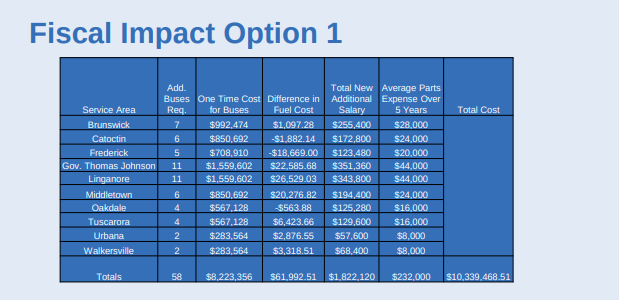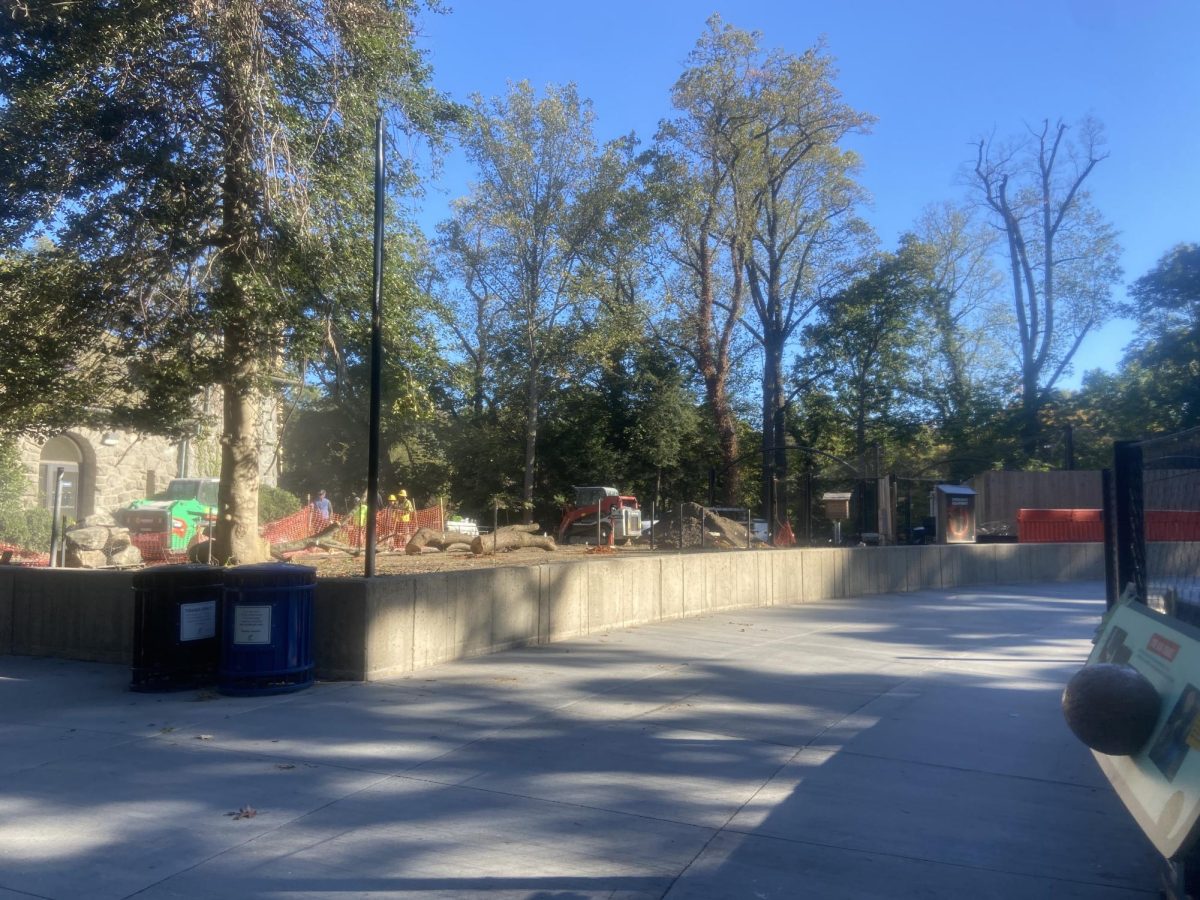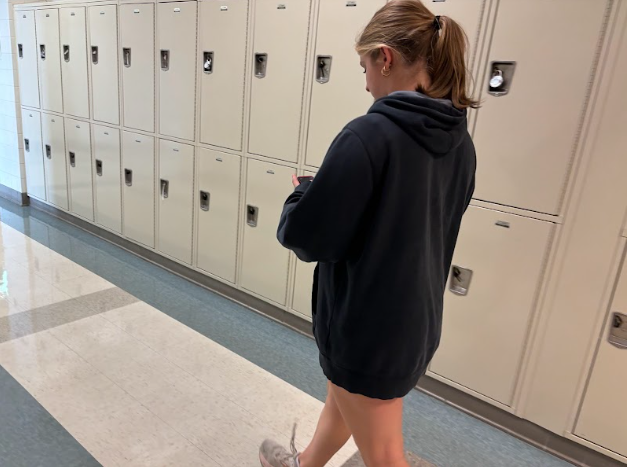Sleep is very important in the mental and physical development of a teenager and is needed to thoroughly adapt to changes happening in their lives. According to KidsHealth.org, the average high school student should be getting anywhere from 8 to 10 hours of sleep per night. However, this is not the case for most students, who average about 7.5 hours of sleep a day.
This fact has led the Frederick County Public Schools (FCPS) Board of Education to look further into what they can do to help.
According to the FCPS Board of Education, the lack of sleep has created many negative physiological and psychological effects in teenagers. These include, but are not limited to, increased depression, increased substance abuse and an increase in school based-violence.
A CDC study conducted in 2015 revealed that 72.7% of high school students do not get sufficient sleep on school nights, highlighting the widespread issue of inadequate sleep among adolescents that results in numerous issues stemming from sleep deprivation.
Along with other studies, the National Library of Medicine conducted and published an examination of the correlation between reported sleep quality and the grade point average (GPA) of medical students which can be extrapolated to apply to today’s high school students. The findings of the study showed that students who reported poor sleep had a significantly lower mean GPA than those who reported good sleep. The study attributed the discrepancy to the adverse effects that arise from insufficient sleep, such as impaired learning and memory processes.
Linganore High School (LHS) student experiences support this conclusion. Sophomore Carly Moyer described feeling the affects of sleep deprivation in school.
“In school, whenever I try to focus on what the teacher is saying, I always zone out every single time because when you zone out, it helps you feel a little better,” said Moyer.
The high percentage of sleep deprivation amongst high school students has led FCPS officials to take action. Roger Dean Rose, a member of the FCPS Board of Education; Paul Lebo, FCPS chief operating officer; and Fred Punturiero, director of transportation, presented a plan to address the aforementioned issue at the FCPS Board of Education meeting on January 4.
“What I’d like to do is put a work group together of students and teachers and administrators and community members, [in order to] kind of give them more room to see what [school schedule] might fit best in Frederick County,” said Rose.
The current schedule for Frederick county’s public school system has high schoolers, the students who will be most impacted by the change, starting school at 7:30 a.m. This is followed by middle schools starting at 8 a.m. and then elementary schools at 9 a.m.
Rose and his colleagues proposed a possible plan to change school start times, which has high school students starting school sometime between elementary and middle schools. The two schedule options being considered have high school beginning at either 8:30 a.m (Option 1) or 8:45 a.m (Option 2). This change would also mean that elementary schools would begin either at 9:15 a.m or 9:30 a.m, while middle schools would stay the same.

The time change would not only impact the start times for students but also the end times. Middle school students would now end at 2:45 p.m., high school students would end at either 3:15 p.m or 3:30 p.m, and elementary students would end at either 3:45 p.m or 4 p.m.
The change in end times can potentially impact students, especially student athletes and those who work part-time jobs.
Work coordinator and Linganore JV football coach, David Kenderdine, addressed one of the negative impacts of later end times.
“They [practices] would have to be cut down shorter in order for enough teams to actually have time to practice,” Kenderdine said. “They’d be fighting for time underneath the lights since you wouldn’t have the actual daylight hours to actually practice anymore.”
The time change would not just impact students but also school faculty. Many teachers believe that the time change has both positive and negative impacts.
“I’m torn on it [the time change] because I know that sleep is a valuable thing, and I think that that’s why we want to go that route,” said LHS math teacher Jennifer Weiss. “But there are a lot of students that leave and go to work, and that would push things back even later.”
Others believe that if the students wish to get more sleep, they have to take the matter into their own hands.
“It [the new plan] might work, I think,” said LHS English teacher Damon Norko. “Now the problem is teens will be encouraged to stay up even later as opposed to going to bed.”
FCPS is not the first district to look into a time change. Nearby Howard County Public Schools (HCPS) proposed and actually implemented a similar change for the 2023-2024 school year. HCPS has their schools split into different tiers, meaning that the schedule is not the same between all high schools, middle schools and elementary schools.
“It did not have as big of an impact as everyone thought it would, but that is a good thing,” Daniel Klinkenberg, an Atholton High School sophomore from Howard County, said.
The Howard County time change was small but still allows students who have extracurricular activities to get a little more sleep at night. For students who do not need it, there is not that big of a change to their schedules either.
“It does make it easier to handle first period, I’m not as tired and I can learn and do well on tests, and that was a lot harder last year,” said Klinkenberg.
Whether or not the change will be adopted is yet to be determined. Concerns about funding have kept these same changes from being implemented in the past.
A previous cost analysis conducted in 2019, which follows the same start time schedule as what is currently proposed, showed the fiscal impact of the change to be approximately 7 million dollars. Under the two potential changes presented by Rose and his colleagues, the surplus to the fiscal impact is theorized to be an additional $3 to $4 million dollars.
“It is a significant ask on our budget,” said Rose. “Our challenge is finding a way to get it implemented and get the funding that we need in order to do it. I knew the Board itself had looked into this a number of times over the years without taking any real action. I just felt like it was time to kind of bring it back to the surface and see if we can take some action on the issue.”
















Davis • Mar 20, 2024 at 6:32 pm
In the real world, your job may require you to wake up early, this is no different. You can’t ask your boss to shift a work time completely and permanently because you “need more sleep”. Students are responsible for their actions. If they need more sleep, go to bed earlier instead of playing Fortnite battle royale.